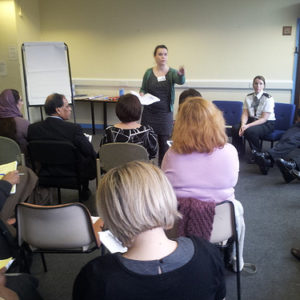Once you have identified the type of job you are interested in, the challenge is to get it. This takes planning – you will need to create an arresting CV, for a start.
Employers and HR managers receive hundreds of CVs every year, so if yours is confusing or badly laid out then chances are that it will be dismissed out of hand – research indicates that a CV has approximately 20 seconds to make a good impression.
To the people that make decisions, a disorganised CV indicates a disorganised person. To make sure that yours looks the part, you could consider getting the help of a CV service, who will take your rough material and design you a professional-looking résumé. Some also provide help with its content. However, it is perfectly possible – and more cost-effective – to do it yourself.
You can find numerous sample CVs on the Internet, which you can use to help you build your own. However, don’t try to copy any CV exactly. If you try to force your education and skills into a format to which they are unsuited, then it will be obvious to the recruiter. Don’t be afraid to make changes.
Selling Yourself
Your CV represents an opportunity to sell yourself to potential employers. It is essentially a written history of your academic, personal and work achievements, displayed to their best advantage. Unlike an application form, your CV really gives you carte blanche to show off and highlight your good points.
However, in the world of employment, one size does not fit all. While most people have a “master” CV with that contains their core information, they tailor it to suit each job that they apply for. The most effective résumés are clearly focused on a specific job and address the employer’s requirements for the position.
A typical CV is no longer than two pages – employers don’t want to know about that time you won the egg and spoon race (beating out Margaret Downey by the tiniest of margins). It usually includes the following details in the order indicated below:
- Objective – a sentence or two that describing your desired career goals or the most valuable skills you have.
- Name, address, date of birth, contact number and email address.
- Education – this should include details of your Leaving Cert (or other school qualification) results. If you have other qualifications, such as an ECDL certification, then you should also put them down here.
- Work History – begin with a specific job title followed by the employer’s name and a statement that fleshes out your achievements there. Start with your most recent job, but don’t worry if you don’t have more than one, or even none. School-leavers aren’t’ expected to have that much work experience. However, don’t sell yourself short. Even if you don’t count helping out in your aunt’s shop as work, employers will.
- Interests and Achievements – this is your chance to impress the employer with your positive characteristics and to let some of your personality shine through. However, resist the temptation to tell them that you are the kick-box champion of Ireland, unless, of course, you are. These things inevitably come up at the interview, so avoid the awkward questions and stick to the truth.
- References – the names and contact details of two people who will vouch for your character. School leavers often put down their principal or form tutor, but be sure to ask them before you do, especially if they never liked you much…
Once you have finished, show it to friends or family and get them to read through it for any grammar and spelling mistakes. It can also be a good idea to ask for their general impression of your CV – was it easy to read, is there anything you should add? You don’t necessarily have to take their advice but it is often a good idea to get it.
The Cover Letter
Once you have identified a suitable job opening and tailored your CV accordingly, then you are ready to apply. In most cases this involves writing a cover letter, which should be positive and to-the-point. At the start, mention the position you want to apply for and where you saw the ad. Go on to state any experience that you have that pertains to the job, such as working with computers or operating a cash register. Tell the employer why you think you would be good at the job – e.g. your outgoing personality would be seen as an important asset for a sales position.
It is also essential to write a cover letter if you are applying to a company “on spec” – that is, you haven’t seen a position advertised but you want to send in your details anyway. In this case, state what area you would like to work in and why you think you would be good at it.
Read more about what personality type are you, and how you can improve the way you work.












Comments